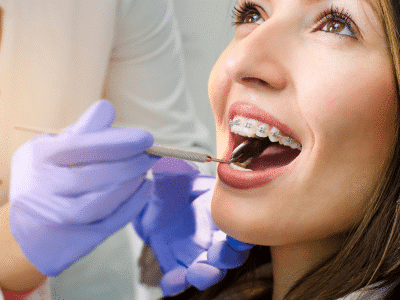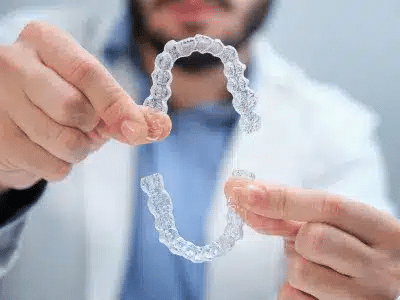
Braces: The Step-by-Step Process
Many people put off orthodontic treatment simply because they aren’t sure what the process involves. Orthodontist Dr. Joseph Porter at Porter Orthodontics is here to break it all down for you, step-by-step.

Many people put off orthodontic treatment simply because they aren’t sure what the process involves. Orthodontist Dr. Joseph Porter at Porter Orthodontics is here to break it all down for you, step-by-step.

It’s a common misconception that dentists and orthodontists perform the same functions. While both professions share certain similarities and often collaborate, orthodontics is a specialized branch of dentistry focused specifically on correcting dental misalignments.

Getting braces is an exciting step toward a better smile, but it can also feel strange at first. While you might be thrilled about your new journey, it’s normal to feel a bit nervous about what’s to come. In this blog, Orthodontist Dr. Joseph Porter at Porter Orthodontics discusses what you can expect during the first few days

Getting a referral to see an orthodontist or considering improving your smile can feel overwhelming. The traditional image of braces can be a turn-off for many, particularly those concerned about aesthetics or comfort. However, Invisalign offers a nearly invisible and comfortable alternative. Let’s debunk some of the myths surrounding this innovative treatment!

A common question among parents in Baton Rouge LA is, “When should my child visit the orthodontist?” Orthodontist Dr. Joseph Porter at Porter Orthodontics is here to answer that question for you. Orthodontic treatment aligns teeth into a beautiful smile, moving them from their current position to their desired position. While anyone can benefit from orthodontics at any age, certain

Maintaining a radiant smile goes beyond brushing and flossing—your diet plays a crucial role too! Vitamins and minerals are not just important for overall health but are also vital for keeping your teeth and gums strong and healthy. To help you achieve a smile that truly shines, here’s a list of key vitamins and minerals from Dr. Joseph